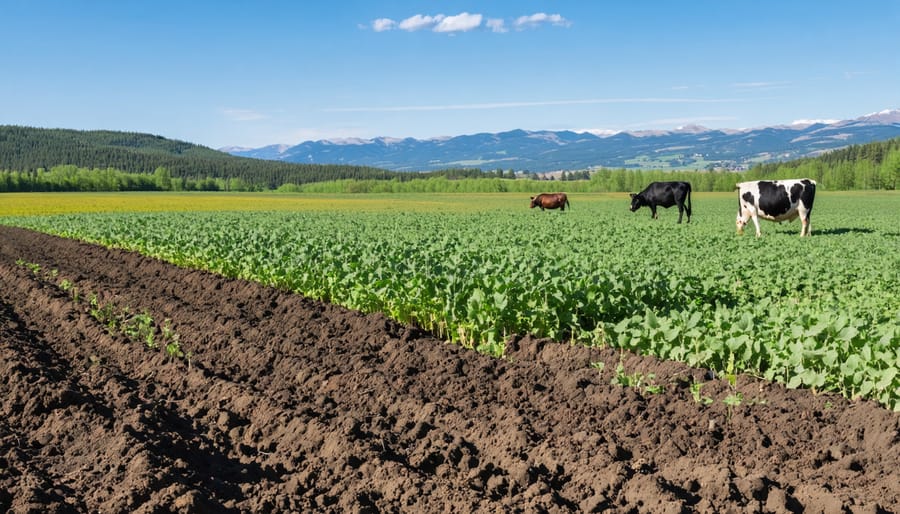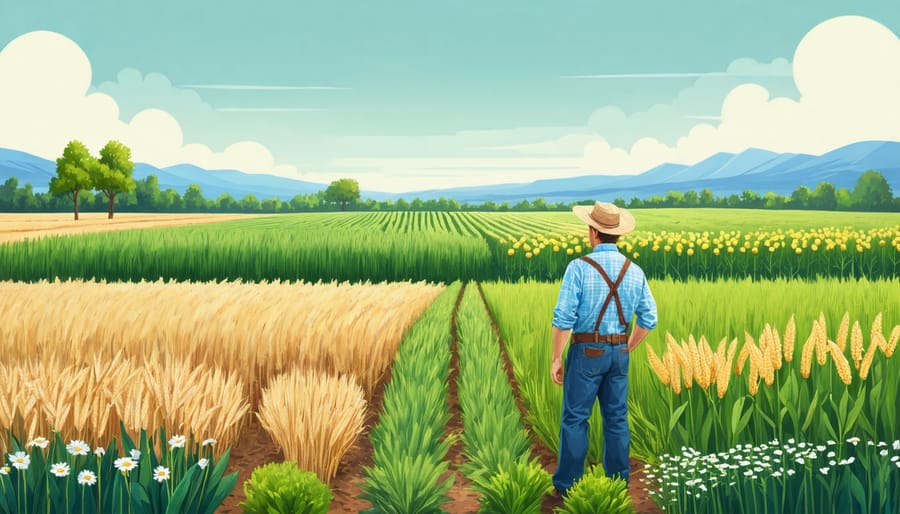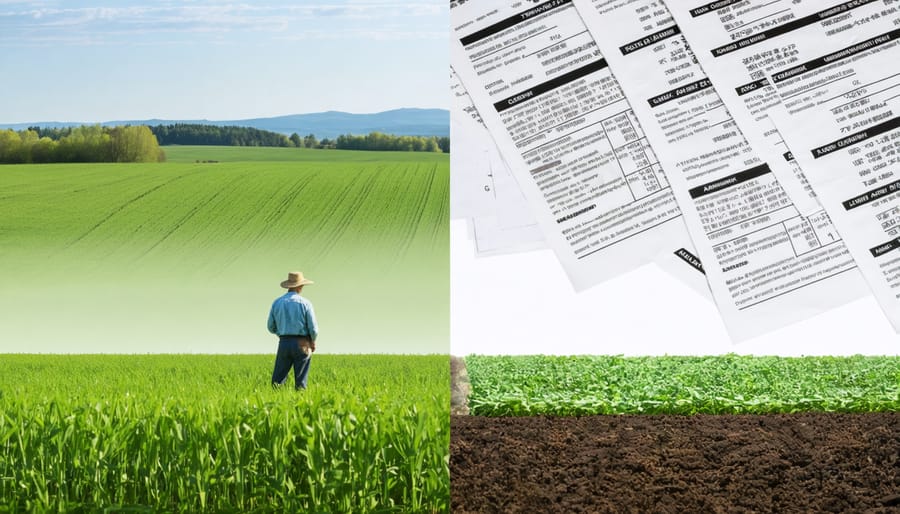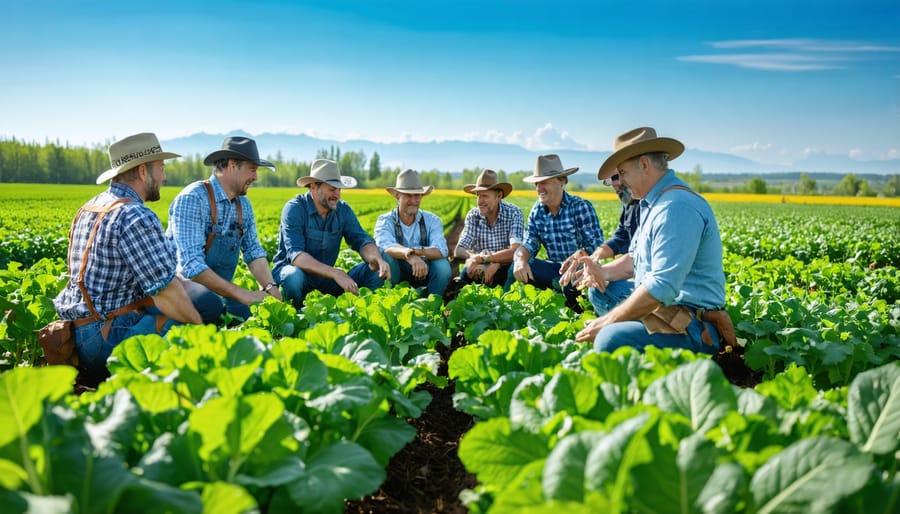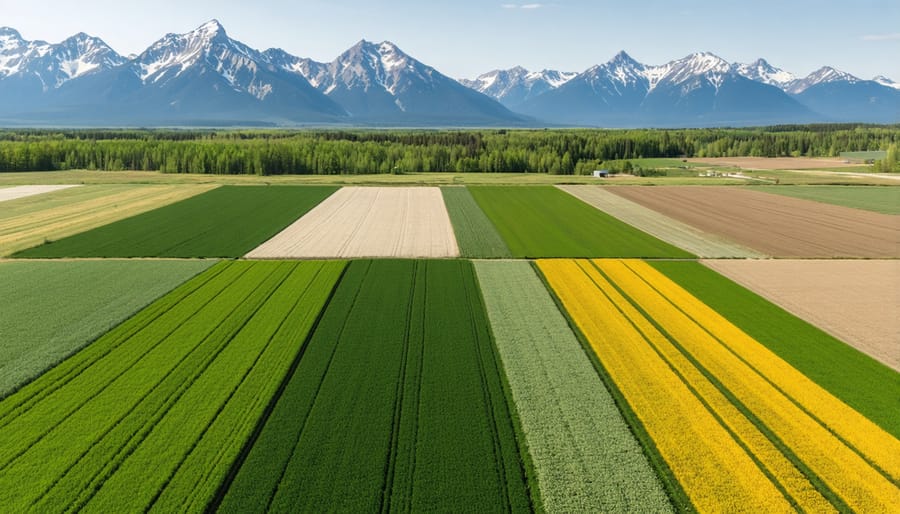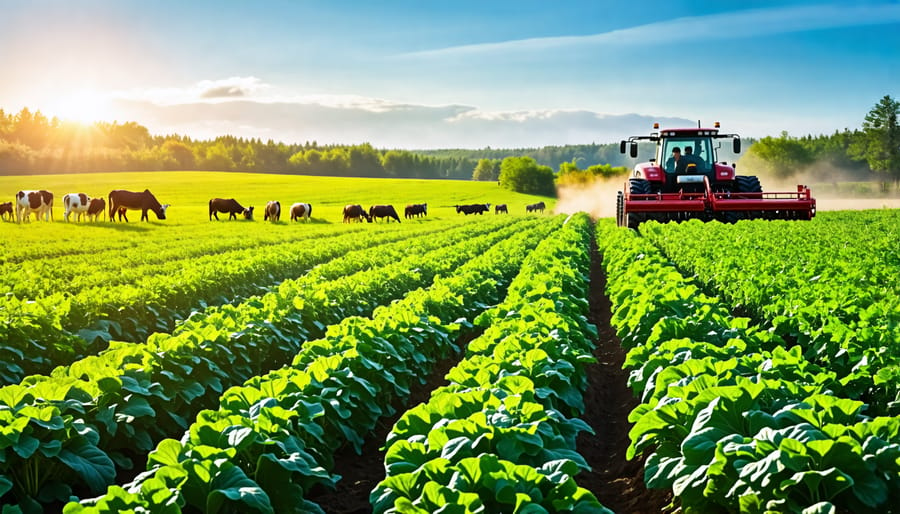In Alberta, Canada, farmers are uniting to combat climate change through community-based solutions that promote sustainable agriculture practices. By sharing knowledge, resources, and innovative techniques, these rural communities are demonstrating the power of collective action in the face of environmental challenges. From adopting regenerative farming methods to collaborating on conservation projects, Alberta’s farmers are leading the charge towards a more resilient and eco-friendly future for their industry. Their grassroots approach not only benefits the environment but also strengthens social bonds and economic stability within their communities. As the world grapples with the urgent need for sustainability, these inspiring examples from Alberta serve as a model for how local initiatives can drive meaningful change on a global scale.
The Power of Community in Sustainable Agriculture
Sharing Knowledge and Resources
In Alberta, farmers are coming together to share their knowledge, skills, and resources to promote sustainable agriculture practices. By collaborating and learning from one another, they can more effectively implement environmentally-friendly techniques on their farms. For example, farmers in the same community can share specialized equipment, such as no-till seeders or precision agriculture tools, reducing the financial burden on individual farmers while encouraging widespread adoption of these practices.
Moreover, experienced farmers who have successfully implemented sustainable practices can mentor and guide those who are just starting their journey. This knowledge-sharing can take place through local workshops, farm tours, or even informal gatherings where farmers discuss their challenges and successes. By fostering a supportive community, farmers can learn from each other’s experiences and adapt proven strategies to their own unique circumstances.
In addition to sharing expertise and equipment, farmers can also collaborate on projects that benefit the entire community. For instance, they can work together to establish cover crop trials, demonstrating the benefits of this practice to the wider agricultural community. By pooling resources and knowledge, farmers can more effectively tackle the challenges of adopting sustainable practices while building a strong, resilient agricultural community in Alberta.
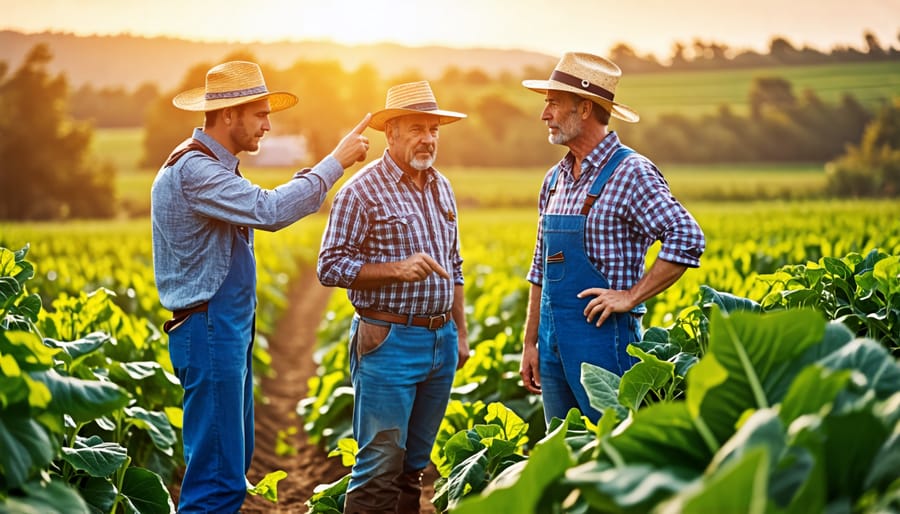
Collective Problem-Solving
Community-based approaches empower Alberta farmers to collaborate and develop innovative solutions to shared agricultural challenges. By pooling their knowledge, resources, and experiences, farmers can identify effective strategies for adapting to climate change, improving soil health, and enhancing crop resilience. For example, farmers in the Alberta region have formed local cooperatives to invest in precision agriculture technologies, reducing water and pesticide use while optimizing yields. These community-driven initiatives foster a supportive environment where farmers can learn from one another, share best practices, and collectively overcome obstacles. Additionally, by working together, farmers can leverage their combined influence to advocate for policies and programs that support sustainable agriculture, such as government incentives for adopting conservation practices. This collaborative problem-solving approach not only strengthens the resilience of individual farms but also contributes to the overall sustainability and vitality of Alberta’s agricultural communities. By harnessing the power of collective action, farmers can drive meaningful change and secure a more prosperous future for generations to come.
Organic Farming, The Canadian Way: A Catalyst for Change
Educational Resources and Workshops
The platform offers a wide range of educational resources and workshops to support farmers in adopting sustainable practices and reducing carbon consumption. These include online courses, webinars, and in-person training sessions led by experts in sustainable agriculture. Topics covered range from soil health and regenerative farming techniques to energy efficiency and renewable energy solutions for farms. The platform also provides access to case studies and success stories from farmers who have successfully transitioned to organic or implemented sustainable practices, offering valuable insights and inspiration. Interactive forums and discussion groups allow farmers to connect with peers, share experiences, and learn from one another. By providing these educational opportunities, the platform empowers farmers to make informed decisions, adopt best practices, and contribute to a more sustainable future for their communities and the planet.
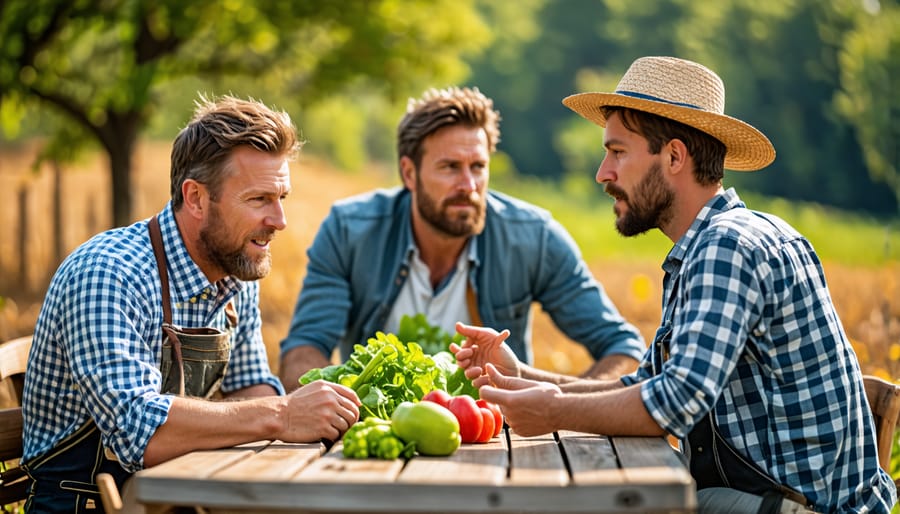
Engaging Experts for a Holistic Approach
The community-based initiative recognizes the value of diverse perspectives in tackling complex agricultural challenges. By engaging experts from fields such as soil science, agronomy, climate science, and rural community development, the project takes a holistic approach to supporting farmers. These specialists work closely with local farmers, exchanging knowledge and insights to develop tailored strategies for each unique situation. Through workshops, field demonstrations, and one-on-one consultations, experts provide comprehensive guidance on sustainable practices, from improving soil health to implementing water conservation techniques. This collaborative approach ensures that farmers receive well-rounded support, empowering them to make informed decisions that benefit both their operations and the environment. By fostering open dialogue and knowledge sharing among experts and farmers, the initiative creates a strong foundation for long-term success and resilience in the face of climate change.
Success Stories: Alberta Farmers Leading the Way
Case Study 1: Farmer Collaboration for Soil Health
In Alberta, a group of farmers has come together to tackle soil health challenges through innovative practices. By adopting cover cropping and reduced tillage techniques, they are witnessing firsthand how these methods can boost crops and the planet.
The farmers, spread across several counties, share their experiences and learnings regularly. They experiment with different cover crop mixes, planting times, and management strategies to find what works best for their unique soil types and microclimates. Reduced tillage practices, such as no-till or strip-till, are also being employed to minimize soil disturbance and erosion.
Through this collaborative approach, the farmers are seeing improvements in soil structure, water retention, and nutrient cycling. They are also noticing reduced input costs and increased crop resilience to weather extremes. By working together and sharing knowledge, these Alberta farmers are demonstrating the power of community in driving positive change for both their livelihoods and the environment.
This case study serves as an inspiring example of how local cooperation can lead to widespread adoption of sustainable practices. As more farmers witness the benefits of prioritizing soil health, the potential for broader impact across the agricultural landscape grows.
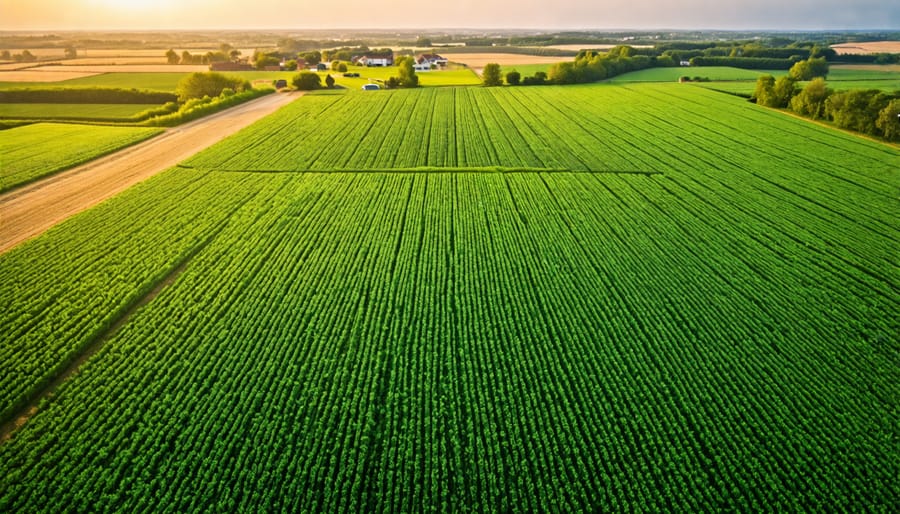
Case Study 2: Community-Supported Agriculture
The Sundog Organic Farm CSA in Redcliff, Alberta, exemplifies a thriving community-supported agriculture program. Established in 2010, the farm has connected with over 200 local families, providing them with fresh, seasonal produce while fostering a sense of community. Members pay an upfront fee at the start of the growing season, which helps cover the farm’s operating costs and ensures a stable income for the farmers.
In return, members receive a weekly share of the harvest, typically consisting of 7-10 different vegetables, herbs, and occasionally fruit. The Sundog CSA also offers optional add-ons such as eggs, honey, and flowers. By directly linking consumers with the source of their food, this model promotes transparency, reduces food miles, and encourages a deeper appreciation for the hard work and dedication of local farmers.
Moreover, the CSA hosts regular farm tours, workshops, and seasonal celebrations, creating opportunities for members to engage with the farmers, learn about sustainable growing practices, and build relationships within the community. This direct connection not only supports the local economy but also contributes to a more resilient and self-sufficient food system, showcasing the power of community-driven solutions in the face of climate change and other agricultural challenges.
Conclusion
In conclusion, community-based solutions are crucial in addressing the climate challenges faced by Alberta farmers. By fostering collaboration, knowledge sharing, and the adoption of sustainable practices, these initiatives empower farmers to build resilience and adapt to changing conditions. Organic Farming, The Canadian Way, serves as a shining example of how farmers can come together to promote environmentally friendly agriculture while supporting local communities. As we’ve seen, their innovative climate solutions not only benefit the environment but also enhance soil health, biodiversity, and the overall well-being of farmers and consumers alike. We encourage readers to get involved with this inspiring organization, whether by attending workshops, volunteering, or simply spreading the word about their impactful work. By joining forces and embracing community-based solutions, we can create a more sustainable and resilient future for Alberta’s agriculture sector. Together, let us support and empower our farmers as they lead the way in tackling climate challenges head-on, ensuring a thriving and prosperous future for generations to come.


